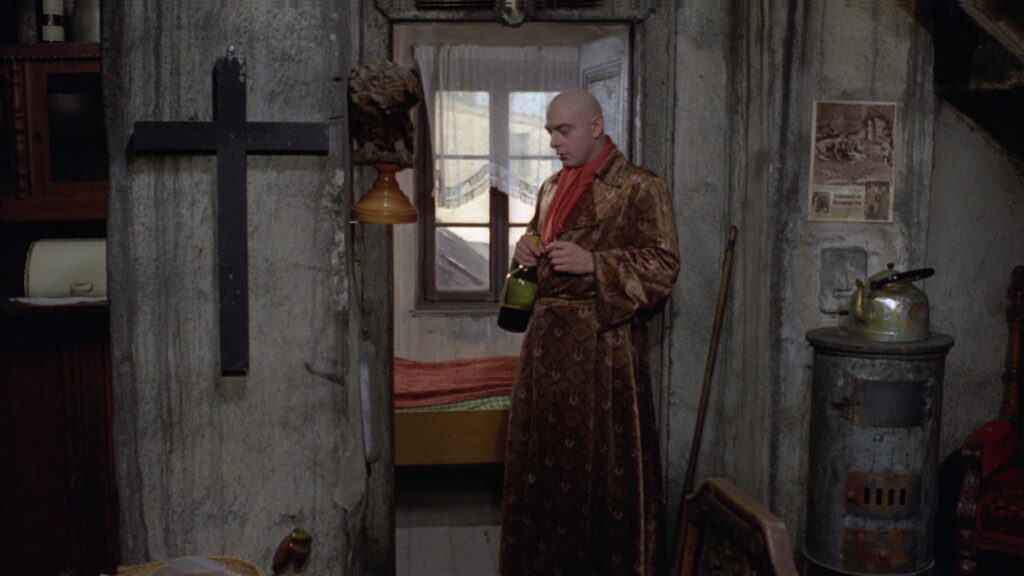
Before Ulli Lommel moved to the United States and began collaborating with Andy Warhol (and segueing into the direct to video market) he directed The Tenderness of Wolves (1973). Lommel’s debut feature was a natural extension of his partnership with Rainer Werner Fassbinder (who served as producer on this film) and the Anti-Theater in general. Various names will be familiar to those acquainted with Fassbinder’s work such as Kurt Raab, Peer Raben, Margit Carstensen, Ingrid Caven, and Brigitte Mira.
Even more so than Lommel The Tenderness of Wolves is Kurt Raab’s film. Raab wrote the screenplay (based upon the same source material as Fritz Lang’s M) and stars in the film as real life serial killer Fritz Haarmann. Raab’s concept for the film is to use this harrowing true crime story as a means to expose how those living on society’s margins are manipulated and victimized by an unjust political system. Though the narrative is set in the latter days of the Weimar era, the message of the film is still highly potent and disturbing, even almost fifty years on. Haarmann’s abuse of his government position to prey upon and exploit the poor, the queer, and the uneducated, combined with Raab’s grotesque yet sympathetic performance, solicit not only outrage, but disgust and heartbreak.
The Tenderness of Wolves, like many of Fassbinder’s films from that time, makes the most out of relatively meager production values. Lommel, borrowing some tricks from Fassbinder, shoots the film in tight, claustrophobic shots that are bathed in shadow. The use of only a few sets and locations place The Tenderness of Wolves firmly within the kammerspiel tradition. This aesthetic approach, designed to entrap the audience with the material, foregrounds all of the physical and emotional violence. There are obvious parallels, due to these tactics, between The Tenderness of Wolves and the later “video nasties” of the eighties. In fact, I wouldn’t be surprised if The Tenderness of Wolves were an influence on Jörg Buttgereit.
If one has an interest in either Rainer Werner Fassbinder or “video nasties” then I’d classify this film as a “must see”. Arrow Video, as per usual, has issued an amazing blu-ray release (that is still in print) with superior image and a plethora of insightful supplements. For those who don’t like their horror films to have an emotional core, this isn’t the film for you. In the end, The Tenderness of Wolves is as much a melodrama as it is a horror show.
